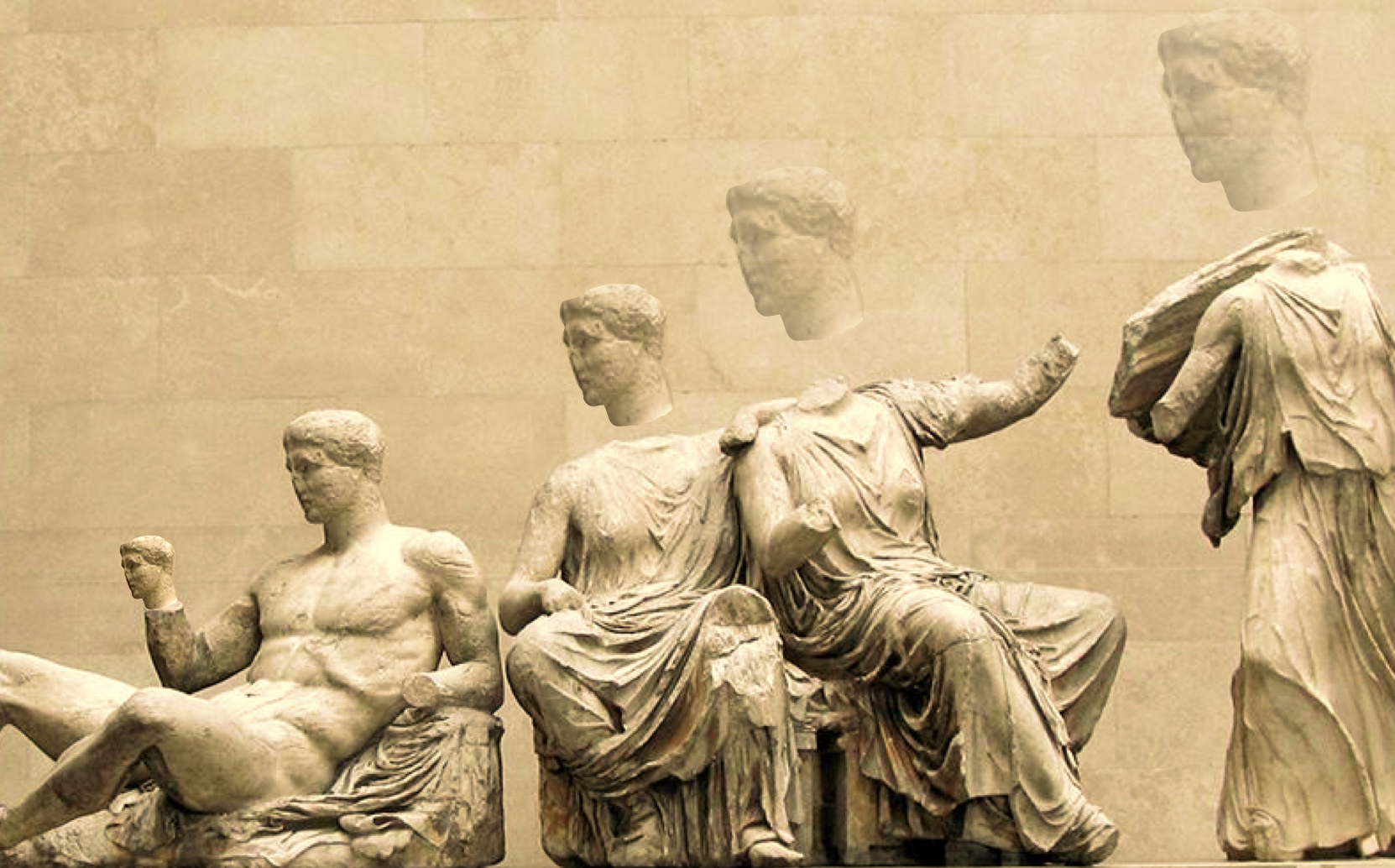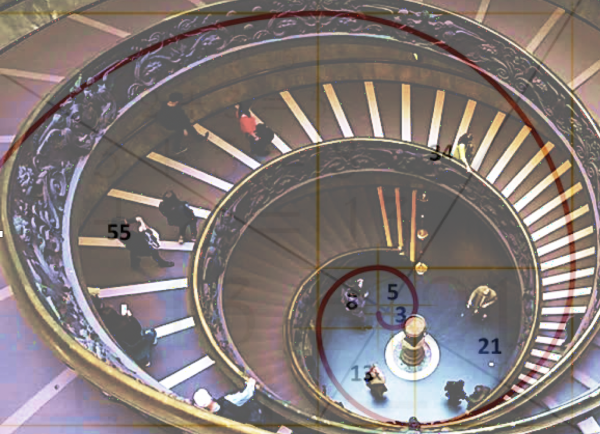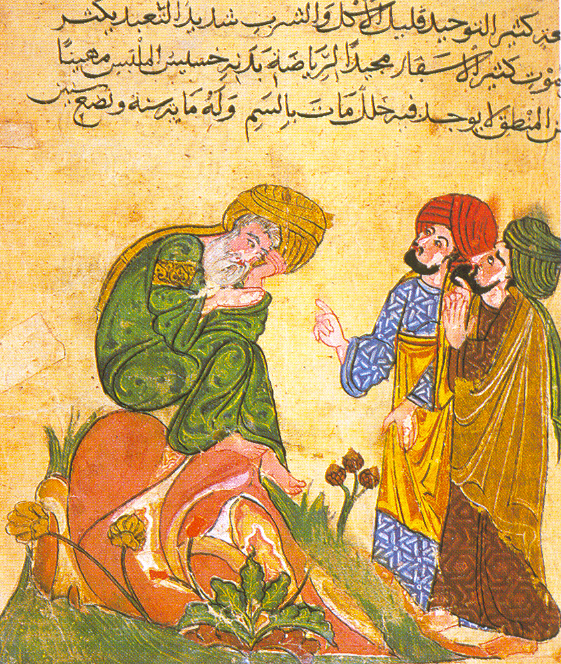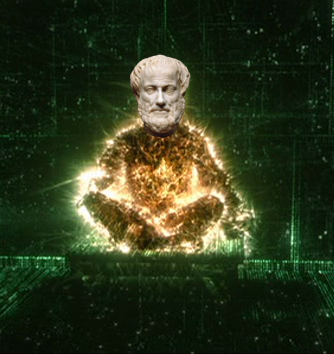The foundational truths are written into our experience. We just have to remember them.
Nature’s Algorithm?

The Deepest Chasm in our Political Landscape
The American mind is deeply divided. As Colleen Sheehan said at the Claremont Institute’s Salvatori Dinner recently, “The central problem of our time is that the divide in the nation today is not merely a policy difference, but a core philosophical disagreement about what it means to be human and how we should live our lives.”
But our desperate need to explore, discuss, and debate this deep disagreement, underlying all our political and cultural disputes, stands in inverse proportion to the capacity of our political and cultural institutions to hold such discourse.
In official circles at our reigning institutions, we are not now capable of it, both because of their rigorously enforced dogma and because of the deficiencies of what passes for elite or advanced education—which in its very curriculum and structure often downplays, bypasses, and even tries to hide the fundamental question: what are we and how then shall we live?
Our predicament is made worse by the fact that, if they speak to each other at all, the intellectual “sides” on this question today often speak past each other, each using language that the other does not fully understand.
Although it retains some popular support, the older understanding of human nature upon which the American regime was originally built and structured has only been conserved—barely—in various pockets of thought (religious, traditional, conservative) that have long since been siloed off from the rest of contemporary life.
This older understanding was largely rejected in the late 19th century, in both America and the rest of the Western world, by our political and cultural institutions. Post-World War II, at least, the prevailing educational and cultural system doesn’t just reject that older understanding and believe it was “falsified” long ago: most of our educated class no longer even grasps what that older understanding was.
The upshot is that whatever the Declaration’s “Laws of Nature and of Nature’s God” refer to, our educated class today does not think it is reasonable to believe in them. Of course, it is almost impossible to conceive of such things being taught unapologetically or at all in our public school system.
The common interpretation of natural science’s findings since the late 19th century has developed into a de facto, vulgar, and often unconsidered materialist philosophy that dismisses the philosophical investigation of nature or the idea that nature could provide a standard for human action. In fact, it increasingly denies that human beings have a nature of their own.
Yet large segments of the American people still reject the burgeoning political and cultural consequences, at least, of the modern, “scientific” understanding of human nature or the lack thereof. As I’ve written in these pages, we are now rapidly coming to the conclusion as a society that, “in the absence of the shared understanding of the early republic concerning what human nature—and therefore politics and America—is and ought to be,” whatever we have constructed since is failing us.
As old modes and orders continue to slide away, new discussions become possible. The change may even in the near future be rather sudden. Concerted and serious attention to ever-present philosophical disputes does not often occur in the course of human events in logical or chronological progression, but rather because of political turnings which re-ignite and re-energize our quest for answers to the underlying questions.
In normal periods of stasis, societies quietly rely on settled common or elite opinion. But America and the democracies of the western world are increasingly unsettled. Nature abhors a vacuum, and our intellectual desiccation is reaching its natural end. As with leaders—when the official elites have finally been rejected because their inevitable corruption is no longer sufferable, one will start looking for new and actual elites—so, perhaps, with certain kinds of vital human questions that ultimately demand at least provisional answers.
Given that the view of human nature which rejected the founders’ and led to the last century of modern liberalism is increasingly found wanting, can we begin to recover and reconceive a shared understanding of what it means to be human?
The American Mind not only seeks to explicate and “translate” the arguments and concerns of both sides in order to make the fundamental divides clear, but to serve as a place where such debate can truly occur.
Nature vs. Environment
Politics is about how we should organize ourselves and live our lives in common. But this depends on what we think human beings are. As I’ve said before in these pages:
We are naturally political beings, yet we are also naturally rational beings. It is natural for human beings to live in political communities, but governments don’t grow on trees. We form the political structures that form us. We do so according to our understanding of what we are and ought to become: according to what we understand of our own nature.
But this is to use old words, too long forgotten. It is no longer clear what the phrase “human nature” might refer to, no matter how defined. We do not use the word “nature” as much as we used to: we’ve taken to calling the natural world “the environment” instead.
Note the difference.
The old word points toward something within everything not of our making that somehow causes these natural things to do what they do. Let’s call this something an algorithm—one we do not create, but merely discover. We glimpse it by reasoning about our observations, experiences, and experiments in the world we are born into. In this understanding, specific kinds of natural things have certain kinds of natures, and to understand their nature is to understand the procedures or rules that maintain, complete, and fulfill the way of life of each species.
Whatever the particular algorithms are for each living thing, we see that all of them strive to live and birth their own kind in various ways. In animals, we still call this “instinct”—a mysterious word, when you think about it—as opposed to human reason. Take an animal or plant outside of its normal “environment” or put it into a difficult set of circumstances and its algorithm may lead to its own death. It has a hard time “choosing” otherwise. Plants and animals don’t have the ability to consciously shape their algorithms to the extent humans do.
To speak of an “environment”, on the other hand, is to describe nature externally, from the outside—the notion is intrinsically tied to a human perspective. It doesn’t refer directly to algorithms or natural ways of being, or indeed any kind of intrinsic order or internal principles of development and motion in the natural world. It arises from a view of nature that is passive and neutral, as if merely composed of building blocks, like Lego bricks, that can be altered by rearrangement. Without our interference, such rearrangement ultimately occurs in “the environment” by chance, or so we simplistically say science tells us.
These two crudely drawn understandings are at the root of our most severe disagreements. If what human beings are is a mere arrangement of physical parts, evolved by chance to adapt to their environment, it is not clear why one way of life might be “good” and another “bad” except, perhaps, insofar as we decide to call what maintains bodily health and integrity “good” and what leads to death and disintegration “bad.” We might question, because we can, whether or not a human being could call death “good” and life “bad.” But can we even define life or living things (as opposed to non-living things) merely in terms of physical arrangements of parts?
The central root of all the rapidly developing disputes and changing opinions about politics today revolve around these two understandings. Do human beings share an algorithm we need to follow to be happy? Can’t we choose our own algorithm? And if evolution alters this over time by chance in reaction to a given “environment”, can’t we alter it ourselves in various ways given our capacity for knowledge, choice, and technology?
For instance, regardless of how we have biologically evolved, if we can use technology to create birth control, to terminate our young in the womb, and to physically alter our chemical balance and body parts, why shouldn’t we? Further, our bodily parts give us pleasure by means of the use of our sexual organs, so why should we constrain ourselves to certain ways of using them as opposed to others?
But what sex, gender, and family are and ought to be, never mind an emerging “transhumanism” and a host of other developments and disputes, are just very striking and high-profile instantiations of the higher-order questions we should be asking everywhere, at every level of our life and society. The very purpose of government and political life revolves around questions that have arisen quite plausibly in the Western world over the last two centuries.
Why, given what we know now of it, in the light of modern empirical scientific knowledge and the corresponding theories that this knowledge gave rise to, should “nature” serve as a standard for human behavior, and to what extent?
Without accepting some sort of special revelation, or the claims of religion, does nature as we find and know it serve as a standard for human action in any way, to any extent?
And if we reject nature as well as religion as a standard, what else do we have left but human will to guide us, and how then do we keep apparently unresolvable disagreements about how we ought to live from devolving into “might makes right” struggles of power?
Almost everything else we argue about—from abortion to transgender bathrooms, from calls to take morality and justice out of politics in favor of efficiency, “objective” evaluation, and science to all our talk of morality, “social” justice, identity politics, and inequality—is far downstream.
What Can We Know About Nature?
This week we present two essays attempting to recover the possibility and meaning of the understanding shared by the American founding generation.
The discussion is influenced in large part by the political philosopher Leo Strauss and his students. Strauss was among a handful of figures that helped many American intellectuals in the last century discover and begin thinking seriously about these questions—and the unsatisfactory nature of much of modern science’s conclusions. Interested readers in this week’s discussion should look back at Glen Ellmers and J. Eric Wise’s first essay at The American Mind (“Skepticism, Experience, and Science”), which took Strauss’s intellectual heirs to task for avoiding these problems, and the ensuing flurry of responses in our “Strauss, Science, & the Crisis of Liberalism” feature.
As Glenn Ellmers tells us this week, in the old republic “[t]he reality of human nature and the truth of moral virtue were not contested or denied as strenuously as they are today.” We are now faced with “the difficulty of understanding how exactly nature provides—if indeed it does provide—a ground of right, a standard for conduct, outside of human will.”
In “Teleology 101: Does Nature have a Why?” Ellmers explicates the understanding of the Western tradition and the American republic with an eye to evolutionary biology. In his response (“An Aristotelian Founding?”), Greg McBrayer echoes many 20th century scholars as he questions whether the understanding of human nature of the founding is in truly line with older Western traditions of thought.
Eric Wise explains that “[i]f we are to answer the looming questions concerning political and natural right in the American regime, we must first establish that answers to those questions are possible. Many intelligent and educated people, as well as everyone else, have long been taught they are not, and that such questions are meaningless.” In “Natural Numbers, Biology, and Natural Right”, Wise argues that math and science themselves reveal that this view is false.
“Classical rationalism”, although long denied and ignored over the last century, provides us a path to the discovery of truths outside of empirical science. In fact, Wise presents us with a case for “prescientific knowledge” upon which empirical science depends and towards which its use is ordered.
Alex Priou responds to Wise (“What is One?”) by claiming that “classical rationalism” is not as clear-cut as Wise suggests. Priou asks if “Wise’s demand that natural scientists take ordinary experience more seriously requires a far more radical turn to prescientific experience than he surmises or lets on.” Priou marshals Strauss to suggest that the sort of “natural science” Wise proposes might, in truth, “require a natural theology.”
Both responses reflect the objections and skepticism of those friendly to the recovery of the traditional Western view of nature, now defunct, even as we argue increasingly vehemently in the public square over the consequences of its absence.
This debate is a very old one, but it has been squelched of late—and in our era it struggles to be understood or heard.
But as technology continues to radically change our lives, these questions will increasingly haunt us over the course of the 21st century—and how we answer them will in large part determine the fate of the very form of our government and the heart of our culture.
The American Mind presents a range of perspectives. Views are writers’ own and do not necessarily represent those of The Claremont Institute.
The American Mind is a publication of the Claremont Institute, a non-profit 501(c)(3) organization, dedicated to restoring the principles of the American Founding to their rightful, preeminent authority in our national life. Interested in supporting our work? Gifts to the Claremont Institute are tax-deductible.
Notes on nature’s means to nature’s ends.
What is the Bedrock of Being? (A Reply to Alex Priou.)
Must the natural scientist become a political philosopher?
A Response to Glenn Ellmers and J. Eric Wise
What If Rights Have Gone Extinct?






